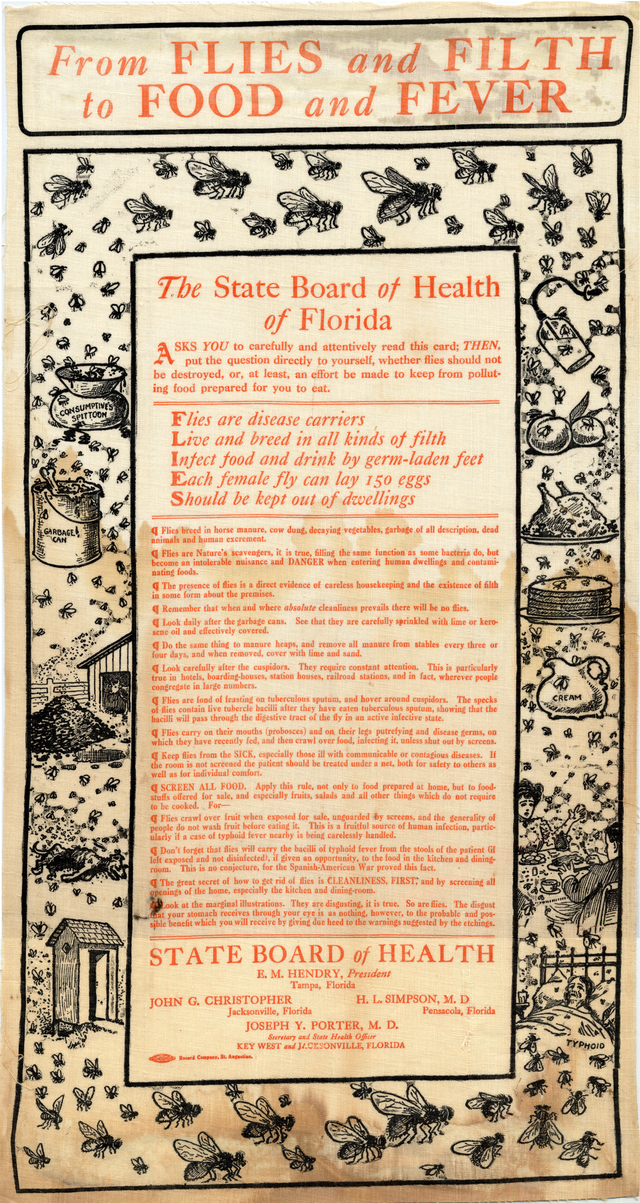science and art of preventing disease, prolonging life and promoting health through organized efforts and informed choices of society, organizations, public and private, communities and individuals From Wikipedia, the free encyclopedia
Public health is the science dealing with prevention when there is a disease that is a threat to the overall health of a community, as well as prolonging life and promoting health.[1] The aims are achieved through the organized efforts and informed choices of society, public and private organizations, communities and individuals.

It bases on health analysis of a handful of people or all the inhabitants of several continents rather than on an individual. Public health includes such parts as epidemiology,[2][3][4][5][6][7][8] biostatistics,[9] health services, environmental, social, behavioral, and occupational health.[10]
Public health intervention prevents rather than treats a disease through surveillance of cases and promotes healthy behaviors such as hand washing, vaccination programs and distribution of condoms. In outbreaks of an infectious disease, treating a disease may be vital to preventing it in others.
Most countries have their own government public health agencies, sometimes known as ministries of health, to respond to domestic health issues. Many diseases are preventable through simple, non-medical methods. Public health plays an important role in disease prevention efforts in the developing world and in developed countries, through local health systems and through international non-governmental organizations. In the developing world, there may not be enough trained health workers or monetary resources to provide a basic level of medical care and disease prevention.
Public health has roots in antiquity. From the beginning, human civilization recognized that polluted water and lack of proper waste disposal spread communicable diseases. Early religions attempted to regulate behavior related to health, from types of food eaten, to behaviors, such as drinking alcohol or sexual relationships. Governments placed responsibility on leaders to develop public health policies and programs in order to gain some understanding of the causes of disease, ensure social stability prosperity, and maintain order.
The Chinese developed the practice of variolation following a smallpox epidemic around 1000 BC. The practice of vaccination did not become prevalent until the 1820s. During the 14th century Black Death in Europe,[11][12] burning parts of cities resulted in benefit, since it destroyed the rodent infestations. The development of quarantine in the medieval period restricted effects of other infectious diseases.
Later people started building sewers and irrigation, the regular collection of garbage, incineration or disposal, providing clean water and draining standing water to prevent the breeding of mosquitos. The industrial revolution initially caused the spread of disease through large conurbations around workhouses and factories.
The increase in average life span in the 20th century is credited to public health achievements, such as vaccination programs and control of infectious diseases, effective safety policies of motor vehicle and occupational safety, improved family planning,[13] smoke-free measures, and programs on decreasing chronic disease such as cancer, heart disease and more physical exercise.
Sometimes, the developing world is affected by largely preventable infectious diseases, due to malnutrition and poverty. The focus of public health has moved from individual behaviors and risk factors to population-level issues such as inequality, poverty, and education. There is recognition that our health is affected by where we live, genetics, our income, our educational status and our social relationships.
Public health in England is mostly run by local government since 2012.[14] They pay for
Schools of public health offer:

Most governments recognize the importance of public health programs in reducing the incidence of disease, disability, and the effects of aging, although public health generally receives significantly less government funding compared with medicine. In recent years, public health programs providing vaccinations have made strides in promoting health, including the eradication of smallpox.
An important public health issues facing the world currently are HIV/AIDS, antibiotic resistance, leading to the re-emergence of diseases such as Tuberculosis,[23] diabetes.[24][25][26][27] As non-communicable diseases caused by smoking have been threatening public health, public health started controlling smoking. The global health system needs to find a way to even out communicable and non communicable diseases. Many nations have implemented major initiatives to cut smoking, such as increased taxation and bans on smoking in some or all public places.
Seamless Wikipedia browsing. On steroids.
Every time you click a link to Wikipedia, Wiktionary or Wikiquote in your browser's search results, it will show the modern Wikiwand interface.
Wikiwand extension is a five stars, simple, with minimum permission required to keep your browsing private, safe and transparent.